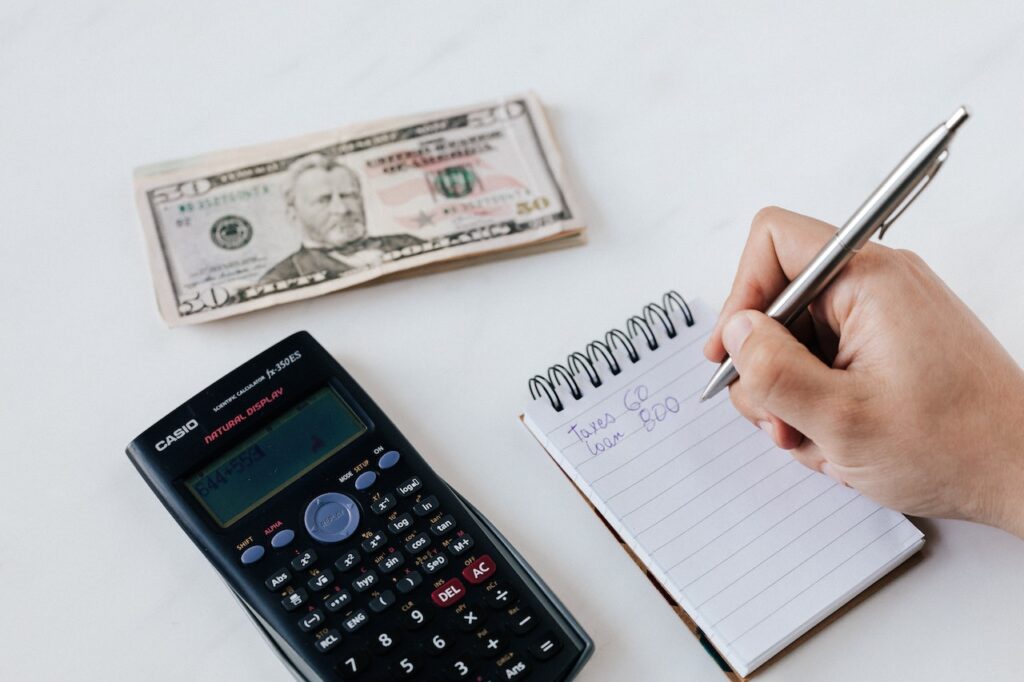When it comes to budgeting, many people focus on their monthly bills and expenses, such as rent, utilities, and groceries. However, it’s important to also consider recurring expenses that may not happen every month but still impact your budget. These can include yearly subscriptions, quarterly car maintenance, or bi-annual insurance premiums.
Understanding recurring expenses is crucial to building an accurate budget. By identifying these expenses and factoring them into your budget, you’ll have a more realistic understanding of your finances and can avoid overspending or unexpected bills. It’s important to take the time to review your bank statements and credit card bills to identify any recurring expenses that may not be top-of-mind.
Incorporating recurring expenses into your budget can be done in a few different ways. Some people prefer to set aside a certain amount of money each month to cover these expenses, while others may choose to budget for them on a yearly basis. Regardless of your approach, it’s important to regularly reassess your budget to ensure that it’s still accurate and effective. By doing so, you can better manage unexpected and variable expenses that may arise throughout the year.
Key Takeaways
- Recurring expenses should be factored into your budget to avoid overspending and unexpected bills.
- Identifying these expenses can be done by reviewing bank statements and credit card bills.
- Regularly reassessing and adjusting your budget is important to manage unexpected and variable expenses.
Understanding Recurring Expenses
When it comes to budgeting, understanding recurring expenses is crucial. Recurring expenses are those that happen on a regular basis, such as rent or mortgage payments, utility bills, insurance premiums, and subscriptions. These expenses are fixed and do not fluctuate from month to month, making them easier to plan for in a budget.
It’s important to identify all recurring expenses and factor them into a monthly budget. This can be done by reviewing past bills and statements, as well as estimating future expenses. By doing this, individuals can ensure they have sufficient funds to cover these expenses each month, and avoid overspending or financial stress.
Some common recurring expenses to consider in a budget include:
- Rent or mortgage payments
- Utility bills (electricity, gas, water, etc.)
- Insurance premiums (health, auto, home, etc.)
- Subscription services (streaming, gym memberships, etc.)
- Transportation costs (gas, public transit, etc.)
- Groceries and household supplies
- Fixed loan payments (car payments, student loans, etc.)
By reassessing recurring expenses regularly, individuals can identify areas where they may be overspending and make necessary adjustments to their budget. This can be done by exploring alternative options, such as switching to a cheaper insurance plan or cancelling unnecessary subscriptions.
There are also various budgeting apps and tools available that can help individuals track their recurring expenses and ensure they are on track to meet their financial goals. By successfully incorporating recurring expenses into a budgeting process, individuals can achieve financial stability and work towards a more successful budgeting process.
Identifying Recurring Expenses
When it comes to budgeting, one of the most important steps is identifying recurring expenses. These are expenses that occur on a regular basis, such as rent, utilities, mortgage payments, insurance premiums, bills, subscriptions, and savings. By identifying these expenses, you can get a better understanding of your monthly cash flow and make more informed decisions about your spending.
Fixed expenses, such as rent or mortgage payments, are typically the easiest to identify. These expenses are the same every month and are usually the largest portion of your budget. Other recurring expenses, such as subscription services, transportation costs, and gym memberships, may require a bit more effort to identify.
One effective way to identify recurring expenses is to review your bank and credit card statements over the past few months. Look for transactions that occur on a regular basis, such as utility bills, groceries, gas, and memberships. You can also review your bills and invoices to see which expenses occur on a regular basis.
Another useful tool for identifying recurring expenses is a budgeting app or software. Many of these tools allow you to link your bank accounts and credit cards, which can automatically categorize your expenses and identify recurring expenses.
It’s important to note that not all recurring expenses are fixed. Some expenses, such as utility bills and insurance premiums, may vary from month to month. It’s important to account for these variations in your budget to avoid overspending.
In summary, identifying recurring expenses is a crucial step in the budgeting process. By identifying these expenses, you can get a better understanding of your monthly cash flow and make more informed decisions about your spending. Using tools such as bank statements and budgeting apps can help make the process easier and more efficient.
Incorporating Recurring Expenses in Budget
When creating a budget, it is essential to consider recurring expenses as they are a significant part of one’s monthly expenses. Recurring expenses are the regular bills that one has to pay every month, such as rent, utilities, insurance premiums, and subscriptions.
To incorporate recurring expenses into the budget, one should start by listing all the recurring expenses and their respective due dates. This list should also include the amount of each expense. This information can be obtained from the previous month’s bills or by checking the account statements.
Once the list is complete, the next step is to allocate funds for each expense in the budget. This can be done by subtracting the total amount of recurring expenses from the total income. The remaining amount can then be allocated to other expenses or savings.
It is important to note that recurring expenses should be given priority when creating a budget. This is because they are fixed expenses that must be paid every month. By allocating funds for these expenses, one can ensure that they are paid on time and avoid any late fees or penalties.
In addition, it is also important to review recurring expenses regularly to ensure that they are still necessary and that one is not paying for services that are no longer needed. For example, if one has a gym membership that they no longer use, canceling it can save some money that can be allocated to other expenses or savings.
In conclusion, incorporating recurring expenses in the budget is an essential part of a successful budgeting process. By allocating funds for these expenses and reviewing them regularly, one can ensure that they have a sufficient financial plan to achieve their financial goals. However, if you need help paying recurring expenses, you can consider applying for title loans online to give you financial aid.
Reassessing Your Budget
Reassessing your budget is an essential step in the successful budgeting process. It helps you to identify areas where you may be overspending and to make adjustments to your spending habits. One important aspect of reassessing your budget is looking at your recurring expenses.
Recurring expenses are those that you pay on a regular basis, such as rent or mortgage payments, utility bills, and insurance premiums. These expenses can have a significant impact on your monthly budget and cash flow, so it’s important to review them regularly.
When reassessing your budget, it’s a good idea to review your recurring expenses to ensure that they are still necessary and that you are getting the best value for your money. For example, you may be able to negotiate a better deal on your insurance premiums by shopping around or bundling your policies.
It’s also important to consider whether your recurring expenses are in line with your financial goals. If you are trying to save money or pay off debt, you may need to cut back on some of your expenses to free up more cash for savings or debt repayment.
Another important factor to consider when reassessing your budget is your sources of income. If your income fluctuates from month to month, you may need to adjust your budget to account for these fluctuations. For example, you may need to cut back on dining out or entertainment expenses during months when your income is lower.
There are many tools and resources available to help you with the budgeting process, including budgeting apps and financial planning services. By taking the time to reassess your budget on a regular basis and making adjustments as needed, you can ensure that your finances are on track to meet your financial goals and that you have sufficient savings to cover unexpected expenses.
Managing Unexpected and Variable Expenses
When creating a monthly budget, it’s important to account for both recurring and variable expenses. Recurring expenses, such as rent or mortgage payments, utilities, and subscriptions, are predictable and can be planned for in advance. However, unexpected expenses, such as car repairs or medical bills, can throw a wrench in even the most successful budgeting process.
To manage unexpected and variable expenses, it’s important to reassess your budget regularly. This can be done by tracking your expenses and cash flow on a regular basis and adjusting your budget accordingly. Budgeting apps can be a helpful tool for this process, as they can help you stay organized and on track with your financial goals.
In addition to reassessing your budget, it’s important to have a sufficient emergency fund to cover unexpected expenses. Financial experts recommend having at least three to six months’ worth of living expenses saved in an emergency fund. This can help alleviate financial stress and prevent you from dipping into your savings or relying on credit cards to cover unexpected expenses.
When it comes to variable expenses, such as dining out or entertainment, it’s important to prioritize your spending based on your financial goals. Alternative options, such as cooking at home or finding free activities, can help reduce discretionary spending and free up funds for savings or other expenses.
Overall, managing unexpected and variable expenses is a key component of a successful budgeting process. By reassessing your budget regularly, building an emergency fund, and prioritizing your spending, you can stay on track with your financial goals and avoid financial stress.
Conclusion
In conclusion, it is important to regularly review and analyze recurring expenses as part of the budgeting process. By doing so, individuals and businesses can identify areas where they can reduce costs and optimize their spending.
One effective way to track recurring expenses is to use a budgeting tool or software that allows for easy categorization and analysis of expenses. This can help individuals and businesses to identify trends and patterns in their spending, and make informed decisions about where to cut costs and where to invest.
Another important consideration is to prioritize expenses based on their importance and impact on overall financial health. This can help individuals and businesses to make informed decisions about where to allocate their resources, and ensure that they are not overspending in areas that are not critical to their success.
Ultimately, the key to effective budgeting is to remain vigilant and proactive in managing expenses. By regularly reviewing and analyzing recurring expenses, individuals and businesses can stay on top of their finances and make informed decisions about how to best allocate their resources.
Frequently Asked Questions
What are some methods of budgeting?
There are several methods of budgeting, including the envelope method, the 50/30/20 rule, and the zero-based budget. The envelope method involves setting aside cash for specific expenses in labeled envelopes. The 50/30/20 rule allocates 50% of income to necessities, 30% to discretionary spending, and 20% to savings. The zero-based budget requires accounting for every dollar earned and spent.
Why is budgeting beneficial?
Budgeting allows individuals to prioritize spending, reduce debt, and save for future goals. It also helps to identify areas of overspending and make necessary adjustments to achieve financial stability.
What tips can help you stay on track financially?
To stay on track financially, individuals should create a realistic budget, track expenses, and regularly reassess spending habits. It is also important to avoid impulse purchases and prioritize saving for emergencies and long-term goals.
Which expenses should be considered when setting a budget?
When setting a budget, individuals should consider both fixed and variable expenses, including rent/mortgage, utilities, groceries, transportation, entertainment, and healthcare costs. It is important to also factor in irregular expenses, such as car repairs or medical bills.
How can you prepare for unexpected expenses?
Preparing for unexpected expenses involves creating an emergency fund and regularly contributing to it. It is also important to have insurance coverage for potential emergencies, such as health or home insurance.
When should fixed and variable monthly expenses be planned?
Fixed and variable monthly expenses should be planned at the beginning of each month to ensure they are accounted for in the budget. It is important to regularly review and adjust the budget as necessary to account for changes in income or expenses.





